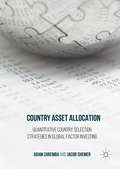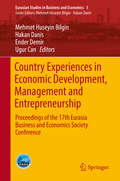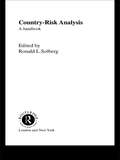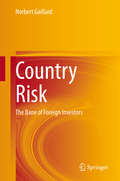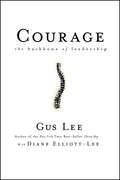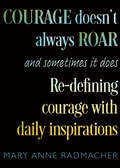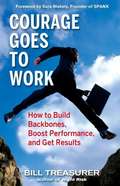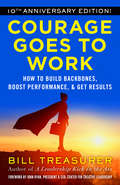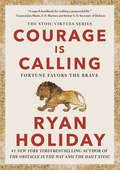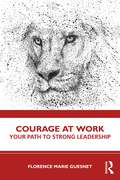- Table View
- List View
Country Asset Allocation: Quantitative Country Selection Strategies in Global Factor Investing
by Adam Zaremba Jacob ShemerThis book demonstrates how quantitative country-level investment strategies can be successfully employed to manage money in international markets. It offers a range of state-of-the-art quantitative strategies, describing their theoretical bases, implementation details, and performance in over 70 countries between 1995 and 2015. International diversification has long been a key to stable investing. However, the increased integration and openness of global financial markets has led to rising correlations between stock market returns in particular countries, driving down the benefits of diversification and increasing the importance of country selection strategies as part of an investment process. Zaremba and Shemer explain the efficiency of quantitative investing, which captures huge amounts of data of limited scope very quickly. In the traditional approach, this data compilation is an immense undertaking, limited in scope and vulnerable to behavioral errors, but this can be overcome with the help of a new paradigm of quantitative investment at the country level. Quantitative country asset allocation can be efficiently accomplished by using wealth insights that have been generated in the academic literature, discovering many anomalies and regular patterns in asset prices. Armed with this information, investors and managers can process large amounts of data more efficiently when deciding to invest in ETFs, index funds, or futures markets.
Country Club District of Kansas City, The
by Ladene MortonONE OF THE GRAND EXPERIMENTS OF AMERICAN URBAN PLANNING lies tucked within the heart of Kansas City. J.C. Nichols prized the Country Club District as his life's work, and the scope of his vision required fifty years of careful development. Begun in 1905 and extending over a swath of six thousand acres, the project attracted national attention to a city still forging its identity. While the district is home to many of Kansas City's most exclusive residential areas and commercial properties, its boundaries remain unmarked and its story largely unknown. Follow LaDene Morton along the well-appointed boulevards of this model community's rich legacy.
Country Experiences in Economic Development, Management and Entrepreneurship: Proceedings of the 17th Eurasia Business and Economics Society Conference (Eurasian Studies in Business and Economics #5)
by Mehmet Huseyin Bilgin Hakan Danis Ender Demir Ugur CanThis volume brings together selected papers from the 17th EBES Conference, organized in Venice in winter 2015. The theoretical and empirical papers present the latest research in diverse areas of business, economics, and finance from many different regions. They chiefly focus on the interactions between economic development, entrepreneurship and financial institutions, especially putting the spotlight on cross-country evidence. Topics range from women's entrepreneurship and economic regulation, to sustainability and climate change. This book provides researchers, professionals, and students a great opportunity to catch up on the latest studies in different fields and empirical findings on many countries and regions.
Country Experiences with the Introduction and Implementation of Inflation Targeting
by Charles Freedman Inci Ötker-RobeA report from the International Monetary Fund.
Country Living The Mom's Guide to Running a Business: Strategies for Work Success and Family Balance
by Michelle Lee RibeiroThis follow-up to Crafting a Business provides everything a determined entrepreneur needs to know to successfully run her own business while raising a family. Through inspiring profiles, 28 women share diverse strategies on business development and operations, defining space and boundaries, and creating a viable work-family balance. A special “workshop” section also provides business basics for those just starting out.
Country Risk Analysis: A Handbook
by Ronald L. SolbergCountry-Risk Analysis is a comprehensive, practical guide to the management of international risk and cross-border lending. The last fifteen years of international commercial bank lending have witnessed a classical boom-and-bust cycle. Yet it is only recently that a formalized approach to country risk assessment has been implemented in the major international banks. Ron Solberg's volume provides a state-of-the-art review of the country risk techniques that have evolved in the context of dramatic changes in developing countries' debt service capacity and in international lending itself. It deals comprehensively with sovereign credit decision making, portfolio management, lending behaviour and financial innovations.
Country Risk: The Bane of Foreign Investors
by Norbert GaillardCountry risk has been a key notion for economists, financiers, and investors. Norbert Gaillard defines this notion as “any macroeconomic, microeconomic, financial, social, political, institutional, judiciary, climatic, technological, or sanitary risk that affects (or could affect) an investor in a foreign country. Damages may materialize in several ways: financial losses; threat to the safety of the investing company’s employees, clients, or consumers; reputational damage; or loss of a market or supply source.”Chapter 1 introduces the key concepts. Chapter 2 investigates how country risk has evolved and manifested since the advent of the Pax Britannica in 1816. It describes the international political and economic environment and identifies the main obstacles to foreign investment. Chapter 3 documents the numerous forms that country risk may take and provides illustrations of them. Seven broad components of country risk are scrutinized in turn: international political risks; domestic political and institutional risks; jurisdiction risks; macroeconomic risks; microeconomic risks; sanitary, health, industrial, and environmental risks; and natural and climate risks. Chapter 4 focuses on sovereign risk. It presents the rating methodologies used by four raters; next, it measures and compares their performance (i.e., their ability to forecast sovereign defaults). Chapter 5 studies the risks likely to affect exporters, importers, foreign creditors of corporate entities, foreign shareholders, and foreign direct investors. It presents the rating methodologies used by seven raters and measures their track records in terms of anticipating eight types of shocks that reflect the main components of country risk analyzed in Chapter 3.This book will be most relevant to graduate students in economics as well as professional economists and international investors.
Country Size and Public Administration (Elements in Public and Nonprofit Administration)
by Marlene JuglAlthough countries differ tremendously in population size, comparative public administration has not considered this context factor systematically. This Element provides the most comprehensive theoretical and empirical account to date of the effects that country size has on the functioning of public administration. It synthesizes existing literature and develops a theoretical framework that distinguishes the effects of small, medium and large country size on administrative structures, practices, and public service performance. Large states with larger administrations benefit from specialization but are prone to coordination problems, whereas small states experience advantages and disadvantages linked to multifunctionalism and informal practices. Midsize countries may achieve economies of scale while avoiding diseconomies of excessive size, which potentially allows for highest performance. Descriptive and causal statistical analyses of worldwide indicators and a qualitative comparison of three countries, Luxembourg, the Netherlands and Germany, demonstrate the various ways in which size matters for public administrations around the world.
Country Stores of Mississippi
by June Davis DavidsonThe old country stores along the back roads of rural Mississippi are the treasures that remain of a bygone era. Travel back to the Mississippi of yesteryear and hear of the deadly can of molasses that once caused a massacre in Carrollton, Mississippi, in the late 1800s. Find the church near Alston's General Store in Rodney with a Civil War cannonball lodged in its front facade. Or discover the haunts of Causeyville General Store among shelves and corners stocked with relics of the American past. These and other stores remembered here by local author June Davis Davidson were the cornerstones of their communities, and harken back to a time when the sweetest things in life were the smell of peanuts roasting and reaching into the penny candy jar.
Country, Sector, Stock: A Framework for International Equity Investors
by Dante Roscini Vera TrojanIndustry and Background Note
Country-of-Origin Effect in International Business: Strategic and Consumer Perspectives (Routledge Studies in Marketing)
by Marzanna K. Witek-Hajduk Anna GrudeckaVarious phenomena in the global economy, such as intensifying firm internationalization and international sourcing resulting in a growing number of hybrid products, raise the question of whether the country-of-origin (COO) and the country-of-origin effect (COE) still matter in contemporary international business. This book points out various aspects of COO, its dimensions and COE that remain significant challenges for consumers, companies and brands not only from emerging and developing countries but also from developed ones. This edited book offers a multifaceted approach to COO and COE. It explores COO communication/neutralization, economic and legal issues, as well as semiotic and anthropological aspects of COO communication in advertising. The book also discusses the impact of COO on consumer behaviour, including in the luxury goods market, and the role of consumer ethnocentrism. It takes a novel, interdisciplinary approach to the field, covering various aspects of the COO, its implications for international business, further theoretical developments within this phenomenon and empirical evidence delivered by scholars representing different fields of science. This book is addressed predominantly to the academic community – academics, scholars and upper-level students – in international marketing, international business and consumer behaviour.
County Department of Public Health: Organizing for Emergency Preparedness and Response
by Lynda M. Applegate Ajay Vinze Minu IpeThe anthrax attacks of 2001 exposed serious inadequacies in the response of the U.S. public health system to meet such grave threats. The public health infrastructure required rebuilding to respond to any type of large-scale health emergency. The Public Health Department at Penville County had been charged with implementing an emergency preparedness and response system for the county. Federal funds were provided to the county to develop an emergency preparedness infrastructure that met the requirements specified by the Centers for Disease Control and Prevention. County public officials had to coordinate their efforts to ensure seamless communication, coordination, and information exchange between various divisions within the public health department, external entities, and the state public health agency. Focuses on the director of Public Health Department and the challenges he faced. Explores issues related to structure, organization, culture, and technology infrastructure.
Coupa
by William A. Sahlman Michael J. RobertsThe case describes the growth of Coupa, a software as a service platform for procurement / expense management. The issues in the case are around how fast to grow and how to finance that growth. The case includes a detailed financial model that will help students analyze the impact of hiring additional sales people and the consequent impact on sales and profits.
Couple Goals: Building a strong financial future and an even better relationship
by Nicole HaddowJournalist Nicole Haddow has entered a new phase of her financial life - as one half of a couple. At 39, she merged finances for the first time and as the author of Smashed Avocado and The Ethical Investor she had spent more than a decade researching personal finance, but is now discovering that sharing money and assets in the 2020s is complex. The traditional breadwinner husband and stay-at-home wife dynamics are increasingly rare. Relationships take many forms, with couples often having to navigate new social and financial issues. How do you split costs when one person earns more than the other? Should you discuss what happens if it doesn't work out? Is it right to ask your partner to contribute to your super while you're on parental leave? Should you go all-in with a joint bank account? How do you talk about money without killing the romance?Couple Goals is a practical and inspiring look at what can be achieved if you're a united team. Nicole shares her own story, talks to experts and couples who hold the secrets to success, and shows that when a couple is aligned in their financial values and vision for the future, anything is possible.
Coupon Crazy: The Science, the Savings, & the Stories Behind America's Extreme Obsession
by Mary Potter KenyonA fascinating history of this marketing tactic, and why some shoppers take it to extremes—from a longtime expert couponer. Coupon Crazy examines the phenomenon of avid coupon use and the socio-cultural and socioeconomic factors that construct it. By delving into the history of couponing, refunding, the science of shopping, and the dark underbelly of a coupon world the average American doesn’t even know about, Mary Potter Kenyon manages to both fascinate and educate. Readers will meet today’s “Coupon Queens” (and Kings) and learn about an era when trash really was cash. Not just an observer of this ethnographic research, Mary lived it for over thirty years.“My favorite aspect of the entire book was the candid tone Kenyon takes in sharing her story and others. As someone that both uses coupons and teaches couponing practices, I found the book triggering self-reflection at many points: Do I purchase products just because they are on sale? Do I devalue products I’ve gotten for free? Do I allow coupons to inform my purchases or the other way around? If you are a couponer, it’s quite possible you’ll find yourself reflecting on your own shopping habits as you read this book, too.” —Angela Russell, The Coupon Project
Courage
by Gus Lee Diane Elliott-LeeIn Courage, Gus Lee captures the essential component of leadership in measurable behaviors. Using actual stories from Whirlpool, Kaiser Permanente, IntegWare, WorldCom and other organizations, Lee shows how highly successful executives face and overcome their fears to develop moral intelligence. These real-world examples offer practical lessons for rooting out unethical practices and behaviors by Assessing them for rightness and integrity Addressing moral failures Following through with dialogue and direct action
Courage Doesn't Always Roar, and Sometimes It Does: Re-Defining Courage with Daily Inspirations
by Mary Anne RadmacherDiscover Your Inner Courage“Courage doesn't always roar. Sometimes courage is the quiet voice at the end of the day saying, 'I will try again tomorrow.'" —Mary Anne Rademacher#1 New Release in Humanist PhilosophyWritten initially as part of a longer poem and featured in a gallery show in 1985, these words by Mary Anne Rademacher defining courage have traveled the globe.Defining courage in a beloved quote. The quote has been featured in ceremonies of all sorts and included in sports and network news broadcasts. Oprah has included it in her magazine and journalists include it in “top ten” lists across many disciplines and categories. And, it is among the most beloved quotes on cards, posters, journals, and gift books.Bravery comes in many forms. Rademacher insists in her book that we overlook opportunities for growth and personal celebration by shrugging off courageous acts of perseverance with, “I just did what I felt I had to do.” Courage shows itself in many ways from having the courage to heal, to change habits, to learn and begin anew, or even to speak up for yourself.Defining courage with daily inspirations. This daily companion for women, men, or anyone who wants to change for good, and live a bolder, more courageous life may be the perfect addition to the start of your day or the key to letting go and ending your day right. Featuring an introduction from courage specialist, Candace Doby, Courage Doesn't Always Roar begins as an invitation to recognize all of the ways courage, and the associated risk, show up on ordinary days. Inside you’ll find:Keys to finding and defining courage in your everyday life180 entries covering all aspects of courage, like: resilience, thresholds, choices, grace, and moreMental health-friendly inspirations meant to shape the way you think about courageIf you liked Courage is Calling, Inward, or Designing the Mind, you’ll love Courage Doesn’t Always Roar.
Courage Goes to Work: How to Build Backbones, Boost Performance, and Get Results
by Bill TreasurerTreasurer is the founder of a consulting firm that helps companies and individuals become more courageous in the marketplace, and this book is designed to help managers to avoid fear and operate out of business "comfort zones" that inhibit progress as well as profits. The author maintains that complacency is the same as fear in a corporate environment, and he offers a plan for making "giant leaps" by first harnessing fear, modulating comfort and setting up safety nets. This book also offers clear strategies for encouraging the same attitudes among employees in order to create a more unified and focused workforce. Annotation ©2009 Book News, Inc., Portland, OR (booknews.com)
Courage Goes to Work: How to Build Backbones, Boost Performance, and Get Results
by Bill TreasurerCourage Goes to Work is for every manager who has ever struggled with how to encourage employees to develop and show more backbone. This book helps managers inspire their workers to move out of their comfort zones and harness their fears so they can step up to challenges more readily and embrace company changes more wholeheartedly. When each and every worker goes to work each day with more courage, the capacity of the entire organization to be courageous is enlarged. The problem is that too many workers are too comfortable, too afraid, or too much of both. Courage Goes to Work helps managers address the problem of workers who are "comfeartable." Comfeartable workers don't exert themselves anymore than they have to. They equate "just enough" with good enough, and are satisfied meeting only a minimum standard of performance. Like a sofa loaded down with overstuffed relatives after a holiday dinner, teams of comfeartable workers become lethargic and are heavy with the weight of mediocrity. This book proposes that a manager's success, happiness and longevity depend on how he or she deals with comfeartable workers. The antidote to comfeartableness, as this book explains, is courage. When courage goes to work, workers they take on more challenging or complex projects. When courage goes to work people actively seek out tasks that stretched their skills and capabilities. When courage goes to work speak up more frequently, forcefully, and truthfully. When courage goes to work people say "yes" to company changes with more enthusiasm. When courage goes to work people are less risk-averse, less self-conscious, and less apathetic. And when courage goes to work, people do less brownnosing, ass-covering, and complaining. This book is all about helping people bring their courage to work.
Courage Is Calling: A Book About Bravery
by Ryan HolidayFortune favours the bold. All great leaders of history have known this, and were successful because of the risks they dared to take. But today so many of us are paralysed by fear.Drawing on ancient Stoic wisdom and examples across history and around the world, Ryan Holiday shows why courage is so important, and how to cultivate it in our own lives. Courage is not simply physical bravery but also doing the right thing and standing up for what you believe; it's creativity, generosity and perseverance. And it is the only way to live an extraordinary, fulfilled and effective life.Everything in life begins with courage. This book will equip you with the bravery to begin.
Courage Is Calling: Fortune Favors the Brave (The Stoic Virtues Series)
by Ryan HolidayThe instant New York Times, Wall Street Journal, and USA Today Bestseller! Ryan Holiday&’s bestselling trilogy—The Obstacle Is the Way, Ego is the Enemy, and Stillness is the Key—captivated professional athletes, CEOs, politicians, and entrepreneurs and helped bring Stoicism to millions of readers. Now, in the first book of an exciting new series on the cardinal virtues of ancient philosophy, Holiday explores the most foundational virtue of all: Courage.Almost every religion, spiritual practice, philosophy and person grapples with fear. The most repeated phrase in the Bible is &“Be not afraid.&” The ancient Greeks spoke of phobos, panic and terror. It is natural to feel fear, the Stoics believed, but it cannot rule you. Courage, then, is the ability to rise above fear, to do what&’s right, to do what&’s needed, to do what is true. And so it rests at the heart of the works of Marcus Aurelius, Aristotle, and CS Lewis, alongside temperance, justice, and wisdom. In Courage Is Calling, Ryan Holiday breaks down the elements of fear, an expression of cowardice, the elements of courage, an expression of bravery, and lastly, the elements of heroism, an expression of valor. Through engaging stories about historic and contemporary leaders, including Charles De Gaulle, Florence Nightingale, and Dr. Martin Luther King Jr., Holiday shows you how to conquer fear and practice courage in your daily life. You&’ll also delve deep into the moral dilemmas and courageous acts of lesser-known, but equally as important, figures from ancient and modern history, such as Helvidius Priscus, a Roman Senator who stood his ground against emperor Vespasian, even in the face of death; Frank Serpico, a former New York City Police Department Detective who exposed police corruption; and Frederick Douglass and a slave named Nelly, whose fierce resistance against her captors inspired his own crusade to end slavery. In a world in which fear runs rampant—when people would rather stand on the sidelines than speak out against injustice, go along with convention than bet on themselves, and turn a blind eye to the ugly realities of modern life—we need courage more than ever. We need the courage of whistleblowers and risk takers. We need the courage of activists and adventurers. We need the courage of writers who speak the truth—and the courage of leaders to listen. We need you to step into the arena and fight.
Courage and Calling: Embracing Your God-Given Potential
by Gordon T. SmithWhat is my calling? How do I live it out in the midst of difficult relationships or moral challenges? Will my vocation change as I enter a new stage of life? With competing needs and demands, how can I craft a balanced way of living?
Courage and Costs: Teaching Adaptive Leadership
by Sharon D. ParksWhat does it feel like to create and practice a way of teaching that keeps the teacher on the edge of new learning and under constant scrutiny? This chapter offers a rare opportunity to hear Ronald Heifetz reflect on the genesis of this approach and his own experience of learning to teach in this mode.
Courage at Work: Your Path to Strong Leadership
by Florence GuesnetCourage can shape our lives, as well as the workplace and business outcomes. Willingness and ability to take risks make space for major decisions. And it’s more than something to admire in others: courage can be learned, and this book will teach you.Building on examples from a 30‑year international career in marketing, coaching, and political activism, Florence Guesnet introduces the pioneering concept of the "courage zone." This shifts courage from unattainable heroism to a competence that can be built with five steps: recognize fear, perceive your heart’s desires, analyze reality, make a decision, and take the step. The book begins by strengthening the reader’s courage as an individual, inspiring a bold mindset and vision, and including hands‑on exercises. The book then goes on to show readers how to carry their courage into organizations and inspire others, addressing questions of governance, strategy, and everyday team encouragement against the backdrop of 21st century demands and typical paralyzing fears.Current and aspiring leaders in small, medium to large organizations will be empowered to take risks, surmount obstacles, and grab opportunities with this book’s effective tools to build courage in themselves and their teams.
Courage in the Twenty-First Century: The Art of Successful Job Transition
by Joan MarquesCourage outlines the art of moving forward both in professional and personal life. Marques offers a strategy for self-renewal in order to divulge the virtues and viewpoints to successfully move from one career to another.
